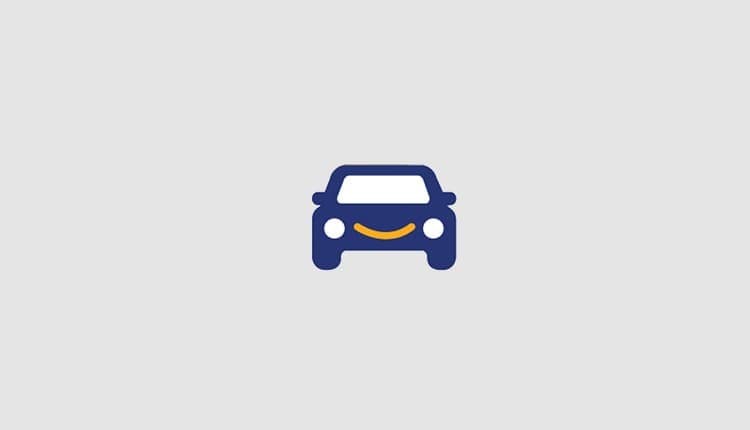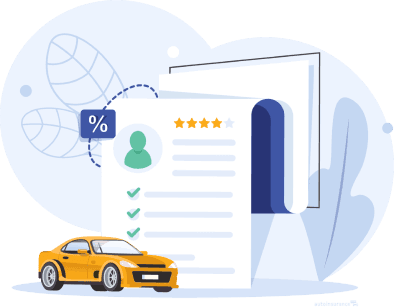
Collateral Protection Insurance for Cars
Collateral protection insurance (CPI) is lender-placed coverage that protects the lender—not you—when your required auto insurance lapses, often at a much higher cost.
Get quotes from providers in your area

Key Takeaways:
- What is collateral protection insurance (CPI insurance)?
Collateral protection insurance, also known as CPI insurance, is a type of force-placed insurance that a lender adds to your auto loan if your personal car insurance lapses. It protects the lender’s financial interest in the vehicle—not yours—and typically offers limited or no coverage for you as the borrower. - CPI insurance meaning and cost implications
CPI insurance usually costs more than standard coverage and is added to your loan balance, increasing your monthly payments. Unlike personal auto insurance, CPI doesn’t cover your liability or medical bills. - How to avoid collateral protection insurance
To avoid being charged for CPI insurance, always keep your required auto insurance active and provide proof to your lender. If CPI is added in error, you can request a refund by showing valid proof of continuous coverage.
What Is Collateral Protection Insurance (CPI)?
Let’s say you get an auto loan to pay for your new vehicle. Your auto loans will come with insurance requirements that are typically more than your state’s required coverage. Usually, it includes collision, comprehensive, and gap coverage, which will pay for the remainder of your loan if your vehicle is totaled. If you don’t have the insurance your auto loan lender mandates, the lender will add collateral protection insurance to your loan.
| Category | Collateral Protection Insurance | Standard Car Insurance |
|---|---|---|
| Who Buys It | The auto loan lender (and charges the cost to the borrower) | The borrower |
| Who Is Protected | The auto loan lender | The borrower (and others involved in the accident, depending on coverage) |
| When It Is Applied | When the borrower fails to maintain required car insurance | Anytime the insured vehicle is involved in a covered incident |
| What It Covers | Physical damage to the financed car, including damage from collisions, theft, vandalism, and natural disasters; does not include liability | Liability insurance (as required by the state of residence), and any additional chosen coverages |
| Annual Average Cost | $2,400 to $6,000, depending your state, lender, and driving history | $2,399 for full coverage
$635 for minimum coverage |
Definition
Collateral protection insurance, or CPI, protects the auto loan lender if the borrower doesn’t have the required insurance when their vehicle is damaged.
What It Covers
Collateral insurance covers your car loan amount and interest.
Benefits of CPI Coverage
CPI protects the car loan provider in case the borrower says they purchased insurance — but actually didn’t — or has lapses in coverage. It gives the borrower the financial responsibility for the loan, so the lender gets their money back.
How CPI Works
When It’s Enacted
Typically, CPI is enacted when a borrower fails to provide proof of auto insurance coverage, including collision and comprehensive coverage and gap insurance. These coverages pay for the borrower’s property damages, whether from collisions or weather conditions, theft, vandalism, etc.
If the borrower doesn’t have collision or comprehensive coverage and their car is totaled, they may still owe an amount on their loan, which gap insurance would cover. If they don’t have gap insurance, the lender would enact CPI to recoup the loaned amount.
How It Impacts You
If you purchase the minimum coverage your lender requires, CPI won’t affect you at all. However, if you fail to provide proof of insurance, your lender may enact CPI. This means you’ll be responsible for the cost of any property damages, not your loan provider.
What Happens if CPI Isn’t in Place
If CPI isn’t in place, it means you provided the necessary proof of insurance via your insurance ID or policy declarations page. Then, if you total your car, your gap insurance will cover the remaining balance on the loan. This means the lender won’t need to protect itself with CPI.
If CPI hasn’t been enacted and you still owe money on your loan and have no insurance, your lender may repossess your car. The repossession will show up on your credit report and lower your credit score, increasing your car insurance premiums and auto loan interest rates.
NOTE:
Having a bad credit score affects your car insurance premiums in every state except California, Massachusetts, Hawaii, and Michigan.
How to Avoid CPI
- Pay your car insurance premiums to your insurance company to maintain the coverage your lender requires.
- Send proof of insurance to your lender.
- If CPI is already in place, your lender will cancel your policy once it receives proof of insurance.
How to Get a Refund
Once you show proof of insurance, your auto loan lender will refund you for the cost of the CPI. Find out more about the costs below.
Companies That Offer CPI
- Allied Solutions
- Breckenridge Insurance Group
- CUNA Mutual Group
- ISI
- Lee and Mason Financial Services
- State National
- SWBC
- Tokyo Marine Highland
Cost
CPI costs anywhere from $200 to $500 a month or $2,400 to $6,000 a year. That’s much more expensive than the average cost of auto insurance, meaning it’s cheaper to have the required coverage and avoid CPI altogether.
How Cost Is Determined
The cost of CPI depends on your state and lender, as well as your driver risk level. Higher-risk borrowers have higher CPI premiums.2
FYI:
You won’t get to choose the type of coverage on your CPI. Your lender will decide that for you.
Is CPI/Lender-Placed Insurance Legal?
CPI/lender-placed insurance is legal. It’s part of the auto loan agreement you signed initially.
Collateral Protection vs. Force-Placed Auto Insurance
Collateral protection and force-placed insurance are two terms for the same concept, along with creditor-placed insurance.3
Conclusion
Hopefully, you won’t have to use CPI insurance as you’ll already have the coverage your auto lender requires. Since CPI costs more than auto insurance, the best bet is to maintain the coverage required. That way, you won’t be responsible for paying the remainder of your auto loan out of pocket.
Citations
Best Collateral Protection Insurance & Vendor Single Interest (CPI/VSI) Providers (2023) Green Profit Solutions, Inc. (2023, Jan 3).
https://greenprofitsolutions.com/blog/best-collateral-protection-insurance-cpi-providers-2019/What is Collateral Protection Insurance? Capital One. (2022, May 20).
https://www.capitalone.com/cars/learn/managing-your-money-wisely/what-is-collateral-protection-insurance/1515Property & Casualty Market Conduct Annual Statement. National Association of Insurance Commisssioners. (2021).
https://content.naic.org/sites/default/files/inline-files/MCAS-Data-Call-Lender-Placed-Home-and-Auto-v.-2021.1.0.pdf

